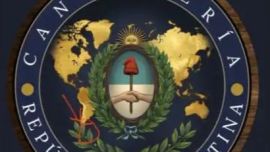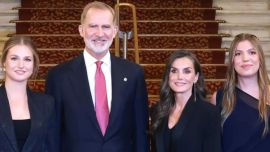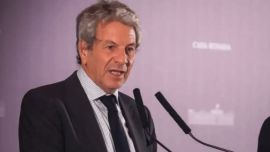Last Tuesday’s resignation of chief presidential advisor Antonio Aracre, Southern Latin America CEO of the fertiliser giant Syngenta for a dozen years until entry into the government at the start of this year, confirms in the short term that President Alberto Fernández cannot possibly head any moderate option in the upcoming general elections, but in a longer term it raises the more important question as to whether that option exists. Throughout his presidency Fernández has given constant proof that if people did not like his moderate principles, he had others and too many people within the ruling Frente de Todos coalition never liked those moderate principles – it is not, however, such pressures which doom his re-election hopes so much as his total loss of credibility, of which dumping Aracre (apparently because of Economy Minister Sergio Massa’s jealous insistence on being the super-minister controlling every aspect of planning) was but the umpteenth example.
Other leaders without this credibility gap are available to head this centrist option (various non-Kirchnerite Peronists with ample gubernatorial or ministerial experience while some would also name Buenos Aires City Mayor Horacio Rodríguez Larreta from mainstream opposition ranks) but the question then arises as to whether they would have anything worth leading in the current context. Any normal logic would dictate that any society with such a strongly middle-class image as the Argentine would correspondingly plant its politics in the middle. But when the only certainty is uncertainty, any logic evaporates. Fear seems to be paralysing the population at every point of the social fabric in what was once the dynamic immigrant country forging that middle-class identity. “The only thing we have to fear is fear itself” from Franklin Delano Roosevelt’s inaugural speech nine decades ago worked wonders against a much deeper depression in the United States but finds few listeners in today’s Argentina.
Today’s rapidly changing technology accompanied by the global upheavals of the past three years make the absence of uncertainty impossible for any prudent mind but the prevailing mood in the build-up to this year’s elections is more like mindless panic. Far from seeking calm, the two main coalitions go stoking these fears at every turn – on one side we have Security Minister Aníbal Fernández talking of “blood in the streets” and on the other, leading opposition figures openly forecast a hyperinflation still regarded as improbable by virtually every professional economist alongside an exaggeratedly negative picture of the general situation (not to mention the uncertainties created by Juntos por el Cambio infighting).
These levels of panic can take society in two different directions, both of them open-ended. On the one hand, a paralysing fear can lead people to cling to the status quo at any cost – within the current Argentine context this might favour the current government along “better the devil you know” lines but it might also feed some ultra-conservative option. Yet panic can also lead to a feeling of nothing to lose more than nothing to fear, tempting people to take the plunge into the unknown with the far right or the far left displacing the current political establishment. Both these contrasting directions run the danger of converging on a common road towards totalitarianism.
Against these extremes the two main coalitions still have the chance of staying in the middle – this Frente de Todos administration began by defining itself as a centre-left government (in that order since AIberto Fernández was nominated for president by a Cristina Fernández de Kirchner relegating herself to vice-president) while Juntos por el Cambio always branded itself as centre-right with Congress weakness obliging the Mauricio Macri presidency to be considerably more the former than the latter. Nevertheless, the failures of both the current and previous presidencies seem to be distancing both coalitions from that middle road which lacks strong alternatives – either an increasingly uncomfortable Rodríguez Larreta or a centrist alliance which (like Massa’s Renewal Front before it) has problems in becoming anything broader than a dissident Peronist faction. Yet current opinion polls do not show the two main coalitions and Javier Milei’s libertarians attracting more than three-quarters of the electorate so that just reaching double digits (a target also chased by the far left) could carry considerable clout in a fragmented scenario.
The challenge facing both coalitions and any champion of the middle ground is to replace the four-letter word of “fear” with another four-letter word – “hope,” based not on mindless optimism or messianic dreams of a saviour but on the realities of millions of hard-working Argentines and a solid future potential.


















Comments